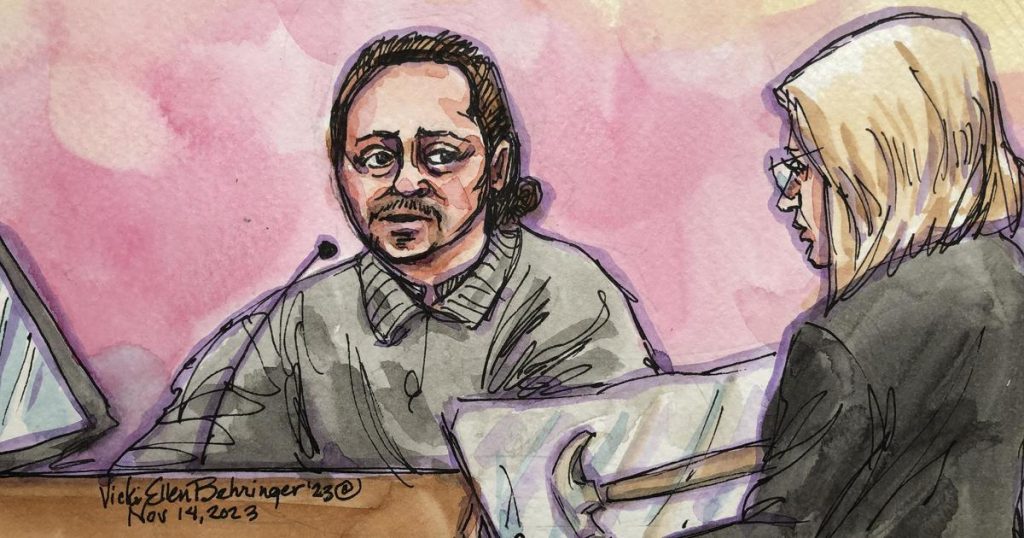David DePape, the man convicted of a hammer assault on Paul Pelosi, apologized during his resentencing hearing where he was again sentenced to 30 years in prison. This hearing was held again due to a court error that occurred during the initial sentencing where DePape was not given the chance to make a statement before sentencing. The judge overseeing the trial made an error during the May 17 sentencing and did not allow DePape to speak which was a requirement of federal criminal procedures. The mistake was noticed by prosecutors that afternoon and DePape’s lawyers promptly filed an appeal. The judge acknowledged the error and apologized during the resentencing hearing.
During the quick 25-minute hearing, DePape apologized for his actions, expressing remorse for assaulting Mr. Pelosi and admitting that he should have left when he found out that Mrs. Pelosi was not there. He also expressed regret for a call he made to a local television station from jail after his arrest, calling it a “stupid immature call.” After DePape spoke, the judge thanked him for speaking, emphasized the seriousness of the crime, and resentenced him to the same 30-year sentence for the assault charge and 20-year sentence for the attempted kidnapping charge, to be served concurrently. DePape was given credit for the time served during the 18 months he has been in custody.
As the federal case against DePape comes to a close, he is also facing trial in state court. A hearing for the state case is scheduled for the following day after the resentencing. DePape’s assault on Paul Pelosi, the husband of former Speaker Nancy Pelosi, occurred in their San Francisco home leading to his conviction on assault and attempted kidnapping charges in November. Despite DePape’s apology during the resentencing, the seriousness of the crime and the impact on the victims were highlighted by the judge in handing down the same sentence.
The reopening of the sentencing hearing due to a court error allowed DePape the opportunity to address the court and express his remorse for his actions. This second chance to make a statement before sentencing provided a moment of reflection and apology for DePape. The judge acknowledged the error and took into consideration DePape’s apology and remorse during the resentencing hearing. DePape’s apology, along with his acknowledgment of the mistakes he made, influenced the judge’s decision to uphold the same sentence previously given.
The case of David DePape and the impact of his assault on Paul Pelosi shed light on the importance of following proper procedures in criminal trials and sentencing. The court error that led to the resentencing hearing demonstrates the necessity of allowing defendants the opportunity to make a statement before sentencing. DePape’s case serves as a reminder of the consequences of violent actions and the importance of accountability for those actions. With DePape facing trials in both federal and state courts, the legal process continues to unfold in response to the assault on Paul Pelosi.


